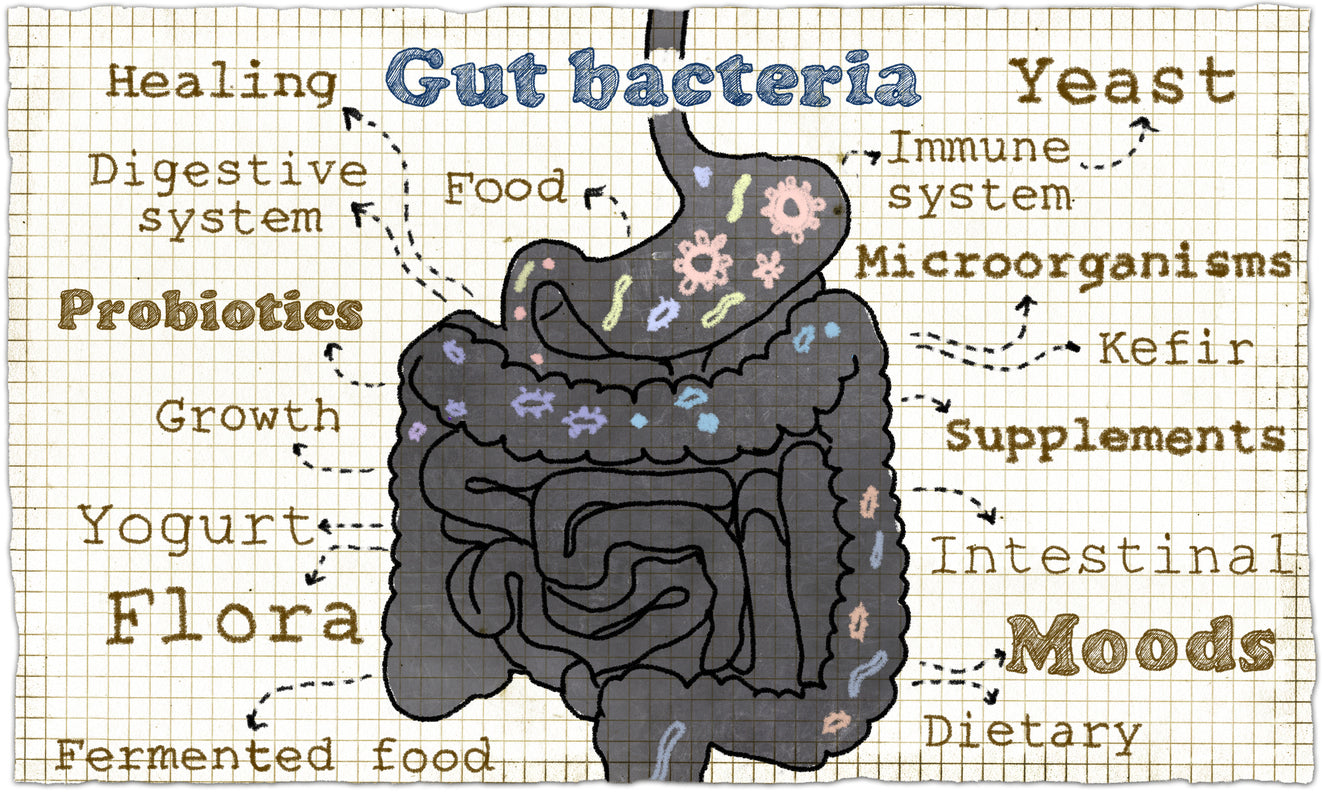
You & Your Belly-Brain: Why Good Health Starts In The Gut
May 16, 2019 3 min read
The Head-Brain
If you're like most people, you probably assume that the physical center of intelligence is the brain: that it's the “gray matter” -- i.e. the networks of neurons – nestled within your skull that functions as the commander-in-chief for the entire human body. And it's true that the brain plays a pivotal role in organizing the body's overall health and wellbeing. But what's also true – and what may surprise you – is that there are significant amounts of neurological tissue in places other than the brain: a fact that now has been fully validated by western science.
The Heart-Brain
One of these places is the heart, which we now know is cradled by extensive networks of neurons that function in ways quite similar to parts of the brain. This discovery has given rise to a whole new field of medical/scientific study – called neurocardiology – that is devoted to exploring the heart-brain connection.
The Enteric Nervous System: Our Belly-Brain
Another place containing a significant amount of neuronal tissue is the gut, aka, the stomach and intestines. As it turns out, the human body possesses not only a “head brain” and a “heart brain” – but also a “belly brain.” And this goes far in explaining some of our common experiences:
“A big part of our emotions are probably influenced by the nerves in our gut," Mayer says. Butterflies in the stomach—signaling in the gut as part of our physiological stress response, Gershon says—is but one example.”
This discovery of neurological tissue lining the gastrointestinal system -- known collectively as the “enteric nervous system” -- has given rise to the scientific/medical field of neurogastroenterology, which is devoted to the study of the brain-gut connection. The existence of this belly-brain accounts for so-called “gut feelings” – a kind of intelligence rooted not in the brain, but rather in the neurological tissue of our belly.
- The American Psychological Association, September 2012
The bottom line is that the brain doesn't have a monopoly on intelligence. Scientific studies have now confirmed what folk wisdom and intuition have long known: that the heart and the belly have their own kind of intelligence, which deserve to be taken seriously – and which affect our overall health and wellbeing just as much as does brain-intelligence.
The Microbiome: The Foundation Of Gut Health
The enteric nervous system – whose function (as mentioned above) is to regulate the gastrointestinal system – consists of hundreds of millions of neurons, which collectively form the link between belly-intelligence and brain-intelligence. Justin Sonnenburg and Erica Sonnenburg summarize the importance of this system, in their book The Good Gut: Taking Control of Your Weight, Your Mood and Your Long-Term Health, when they say:
“There is a superhighway between the brain and GI system that holds great sway over humans.”
One of the enteric nervous system's most important jobs is to “listen” to the microbiome: the trillions of bacteria and other microbes residing in the gut. The importance of these microorganisms to our overall health – e.g. to our energy level; immune system functioning; mental health (via serotonin production); levels of inflammation, etc. – has been explored in depth by the Human Microbiome Project. In short, gut health is an essential and vital foundation for our physical, mental and emotional wellbeing.
How To Improve Gut Health
Given the proven importance of gut health to our overall wellbeing, it makes sense to take very good care of our belly-brain: the microbiome and enteric nervous system. What are the best ways to do this?
1. Include generous amounts of probiotics (i.e. “friendly bacteria”) in your diet. The easiest way to do this is by getting into the habit of adding fermented foods -- such as yogurt, kefir, miso, tempeh, sauerkraut, kimchi, and kombucha -- to each meal. Alternatively, you can take a high-quality probiotic supplement.
2. A lesser known, but no less important factor for gut health is maintaining the structure of our gut lining. Trace mineral amino acids and humic acids are often missing from the soil in which our modern foods are grown, resulting in significant deficiencies of minerals in our bodies. Growing your own food in healthy living soil is a great way to get these missing minerals, but maybe not always a viable option in our modern busy lives. Using natural, mineral-rich salt, for example, Himalayan pink salt and Celtic sea salt, is a good way to supplement minerals missing from our diets. A more complete solution and the best dietary supplement we have found for strengthening the structure of the gut lining is called RESTORE.
3. Practicing Qigong, Tai-Chi or Aikido is said to strengthen and harmonize the subtle energy of the Lower Dantian: the Taoist name for “belly-brain.” Eastern movement practices such as these utilize breath, mind/intention, visualization and meditation to amplify, balance and circulate the energy of the belly-brain, in a way that is of vast benefit to the entire body.
To your health and happiness!
Subscribe
Sign up to get the latest on sales, new releases and more …
